07. The Bare Necessities
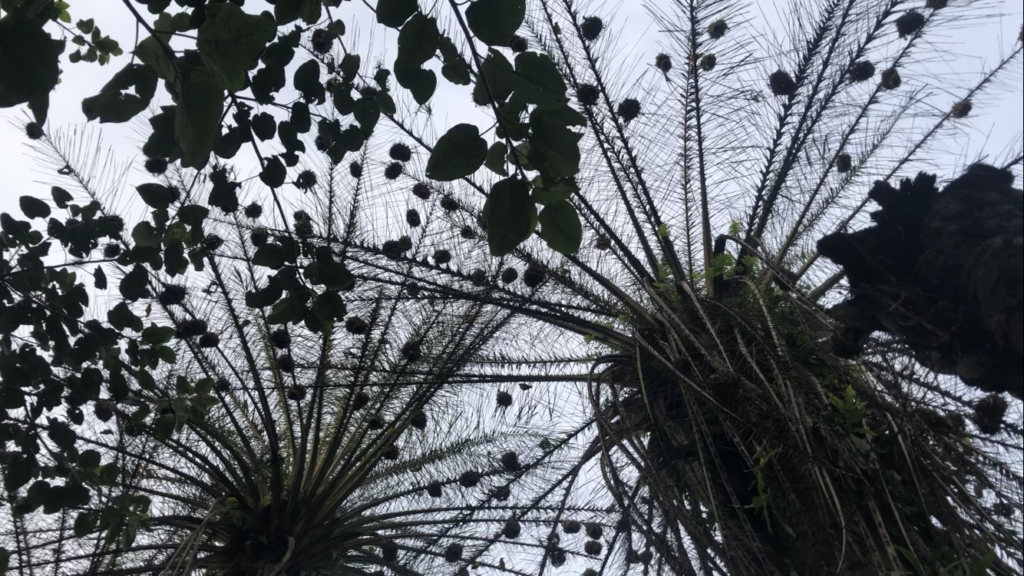
All our needs are met, but this is not without monotony or precarity. Take food, for example. That’s something that we’ll never run out of, but now, over 80 days in the village, is beginning to be very repetitive. There is not a lot to choose from locally and not much demand for a robust grocery economy, so our core meals come from what is found here and what can be stored, dry and in-bulk, for extended periods of time. This means that every meal, without fail, includes rice, and 90% include the ground leaves of the cassava plant—neither of these things are going away any time soon. We also have a lot of brown beans in storage, making it the third most common staple, and oil, salt, flour, and sugar of course. There’s one open-air market that apparently only sells food on Sundays, so every other week we purchase some beef from there or some fish or chicken sold by people going door-to-door. Besides these things, few of our own fruits and vegetables have yet been ripe, and we rarely have the opportunity to purchase fruit from others. I’m looking forward to future pineapple harvests, but in the meantime, little of what we actually eat day-to-day is fresh, which is ironically unfortunate for a subtropical zone.
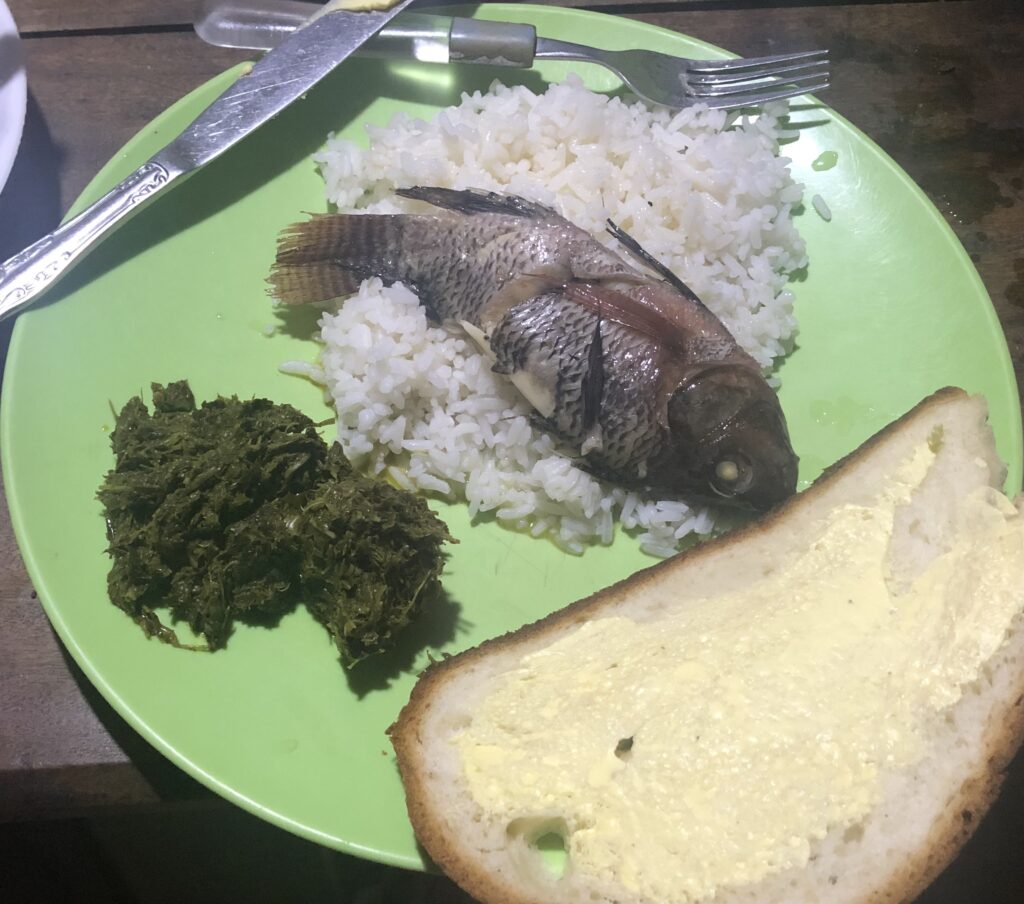
Fortunately, these very limited options have been supplemented to some degree by importation. The Tatis have chartered the bush plane four times for trips out of and back to Kitindi for medical purposes (they’re fine). This means that when the plane has come to pick them up and drop them off—four separate occasions—our stores of products only available in the city become replenished: bread, butter, eggs, condiments, potatoes, onions, tomato paste, noodles, some fruit, and more meat or fish bought in bulk. These still leave our overall options annoyingly slim, but after having beans, rice, and sombe with occasional meat for nearly twenty days, the taste of potatoes and eggs is salvific. Every time a plane has landed, we’ve gotten enough eggs and potatoes to eat every other day for about three weeks, but they and the bread go bad if not eaten fast enough, so it’s often back to the basics in not too much time. And, despite my genuine favor for rice and beans, they do get old. We don’t anticipate any flights in the foreseeable future, meaning restocks of city-wares would have to take place overland by motorcycle. Since Kitindi is not the hottest destination, cargo fees are pretty steep.
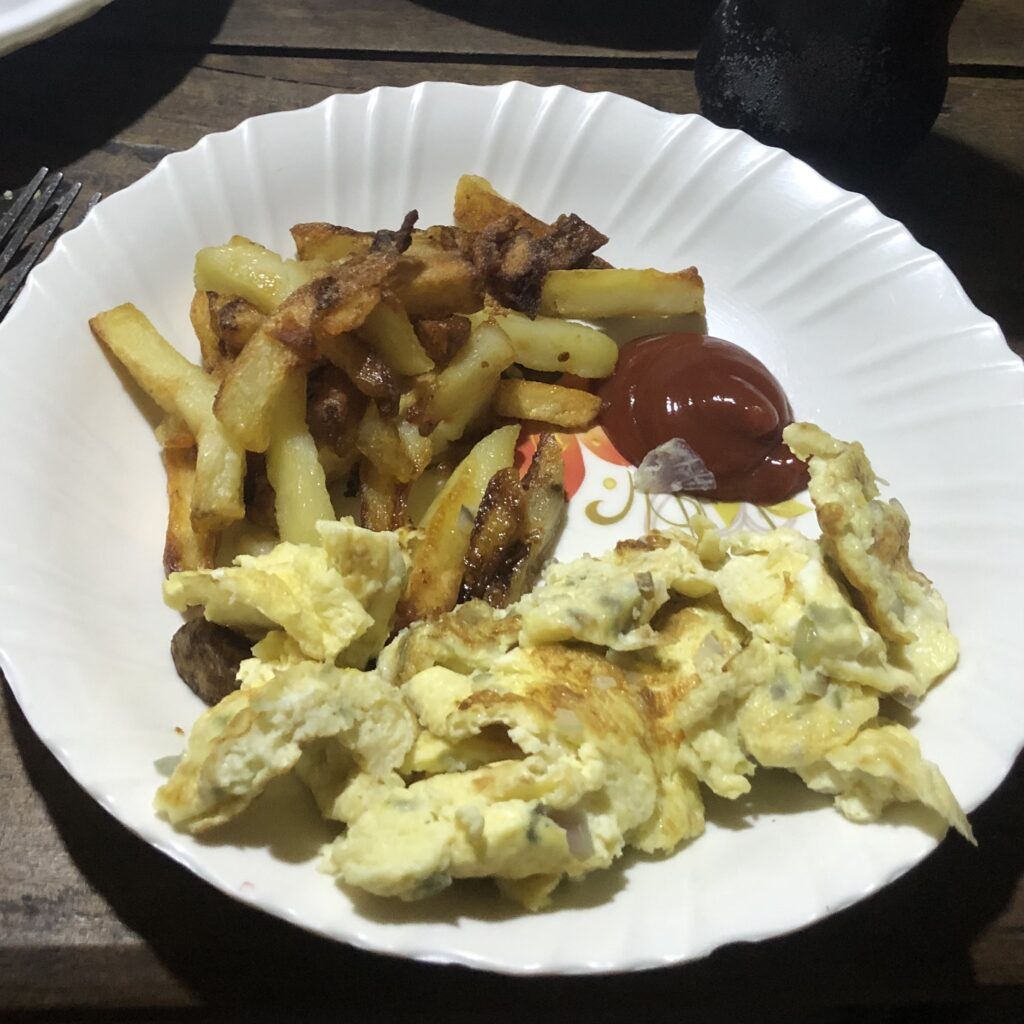
A fridge would come in handy to preserve the eggs and meat and fruit and bread, but we don’t quite have one. Instead, we have a freezer that is the largest energy draw in the house and which we treat kind of like a fridge, sometimes turning it off for periods at a time and trusting its seal to keep things cold if not frozen. Part of why we do this dance is simply to have cold-but-not-frozen things; the other reason is that our energy is not infinite. Our ten-solar-panel and battery-storage system works remarkably well, making us better-powered than probably anyone else in the village; however, even what we have often doesn’t last 24 hours, thanks in large part to the fridge and external security lights (to deter theft). In the U.S., you can save some marginal electrical bills by turning off lights, but here, using too much power means losing it when you might need it—naught to do then but to wait for the sun to come back.
Lack of local infrastructure also means no gas line or water line. Trying to heat anything through our solar panel system results in an overload and short circuit, so cooking is done entirely with charcoal, which must be bought about every three weeks. No water line means that water is either delivered to the house or collected from the rain. Unfortunately, rain can be little and far between for weeks, and the Tatis do not trust the cleanliness of our rain-collector for drinking or cooking. The household’s needs are high with a lot of water used to cook, drink, bathe, clean the house, do laundry, and, sometimes, to water the livestock and garden, meaning we hire someone about every three days to deliver maybe 100 or 120 gallons of springwater at a time (for perspective, the average U.S. household uses about 60 gallons per person per day).
One use of the water I am very grateful for is toilet flushing. There is no plumbing system, but there is an indoor toilet leading to a septic system of sorts outside our house. It actually doesn’t smell that bad, surprisingly, as opposed to the outhouses that nearly every other resident of the village uses. Of all the things unfamiliar, uncomfortable, inaccessible, and poorly functioning, I thank God for the grace of that toilet (I mean it), and I don’t want to take it for granted. This could potentially become a problem, though, because we’re currently quite unsure about the availability of toilet paper in Kitindi. There’s definitely a scarcity of toilets, and I know many people use nature’s provisions (leaves) or thicker forms of paper, but neither of these will jive with our somewhat sensitive septic system. A looming note of precarity more severe than lack of rain, food diversity, or constant electricity is the potential loss of toilet paper. I shudder to consider that day and strive to postpone its coming. I may soon make a trip into town to scour every stand and shop, offering to buy the villages’ entire stock. Henri insists he saw some for sale; the Tatis are skeptical, having always bought theirs from the city.
On a final point of monotony, there is Kitindi itself. I’ve walked its length a couple times, exploring just a bit here or there, but live quite apart from it for a number of reasons. First, and principally, my grandmother is extremely paranoid and forbids me from exploring our milieu without accompaniment. What worries her, I really have no idea, though I’ve ascertained it’s not a worry shared by anyone else, member of my family or not. Additionally, our home is slightly secluded from the main part of town, my daily teaching, grading, and planning all take place in essentially my backyard, and, frankly, there’s not really that much to do anyway. No coffee shops, parks, libraries, or activity centers to visit. When I’ve asked people what they do for fun, child and young adult alike, I’ve consistently been met with initial confusion, eventually getting to “playing soccer, watching soccer, talking, and walking” (I’m gonna keep probing, but this is the gist of what I’ve heard so far). Much like one of my few turns in the kitchen (nothing too fancy, but I have worked with my house brother and the charcoal to make pasta, tomato sauce, and garlic bread twice now), breaking Kitindi’s monotony for myself and others might take some ingenuity and creativity (read: “the honeymoon is over”).
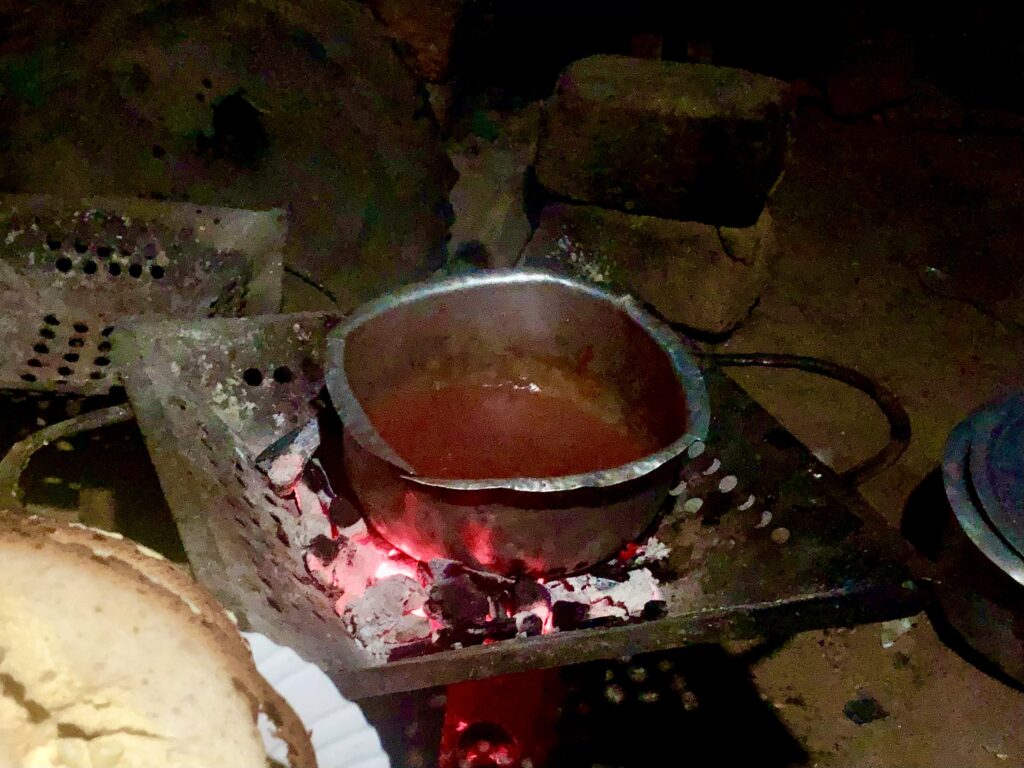
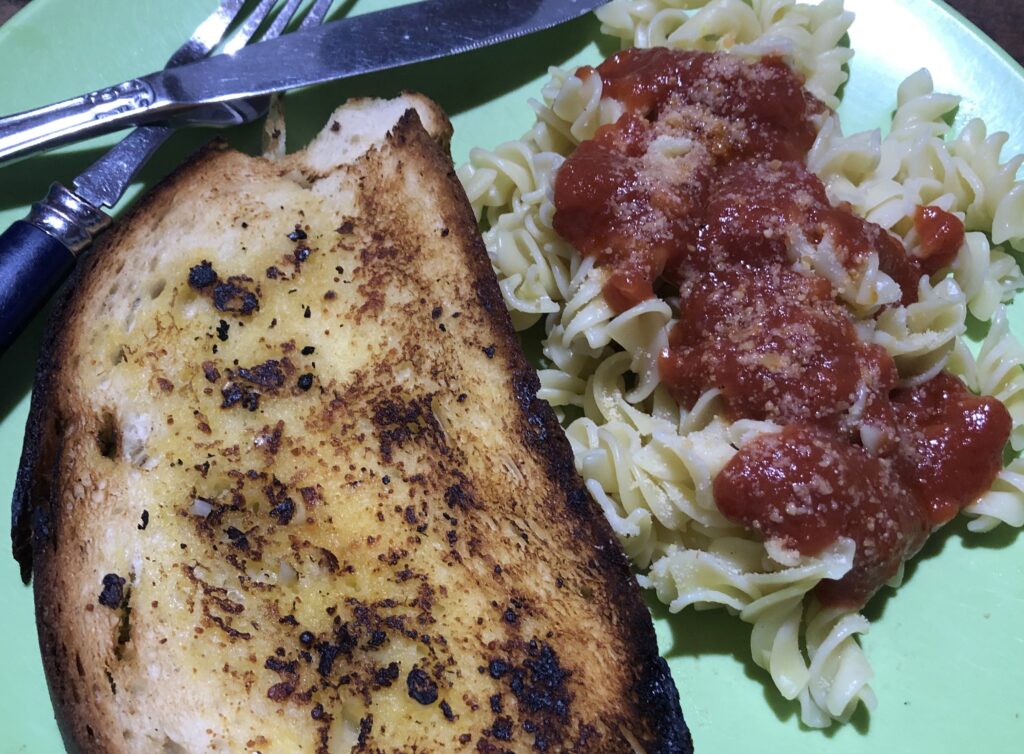
I will be an unpaid volunteer teacher at Union Academique de Kitindi for the 2022-23 academic year. Please consider giving as you are able by clicking the button below or adressing a check to International Berean Ministries and including my name on the memo line. Donations cover room, board, and travel expenses.
International Berean Ministries
PO Box 88311
Kentwood, MI 49518-0311

I love reading these excerpts, Kwabene! Thinking about and praying for you and Henri.
Thanks for reading and praying, Daniel. Hope y’all are well!